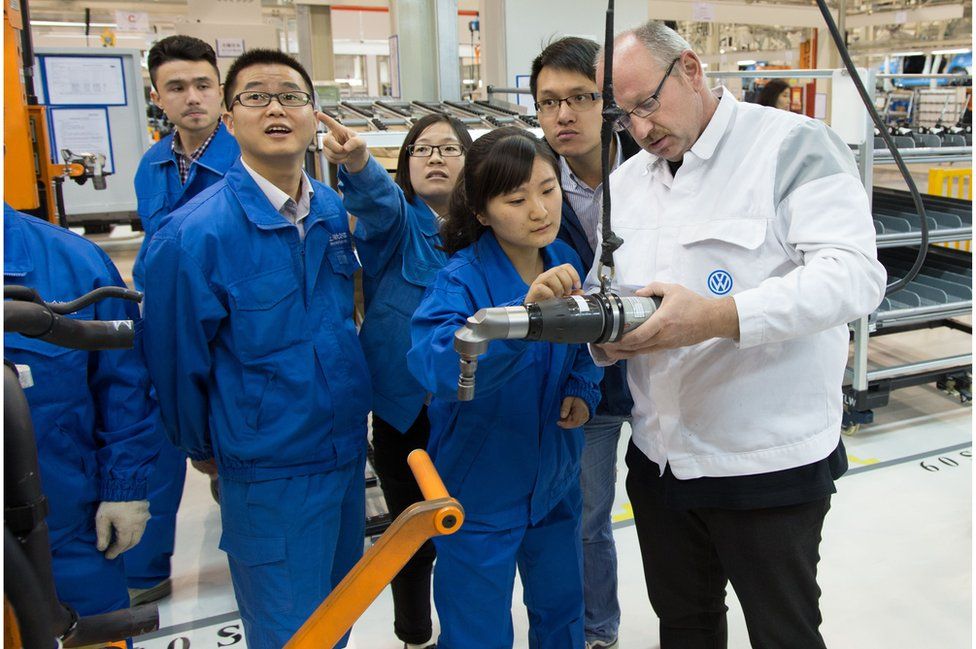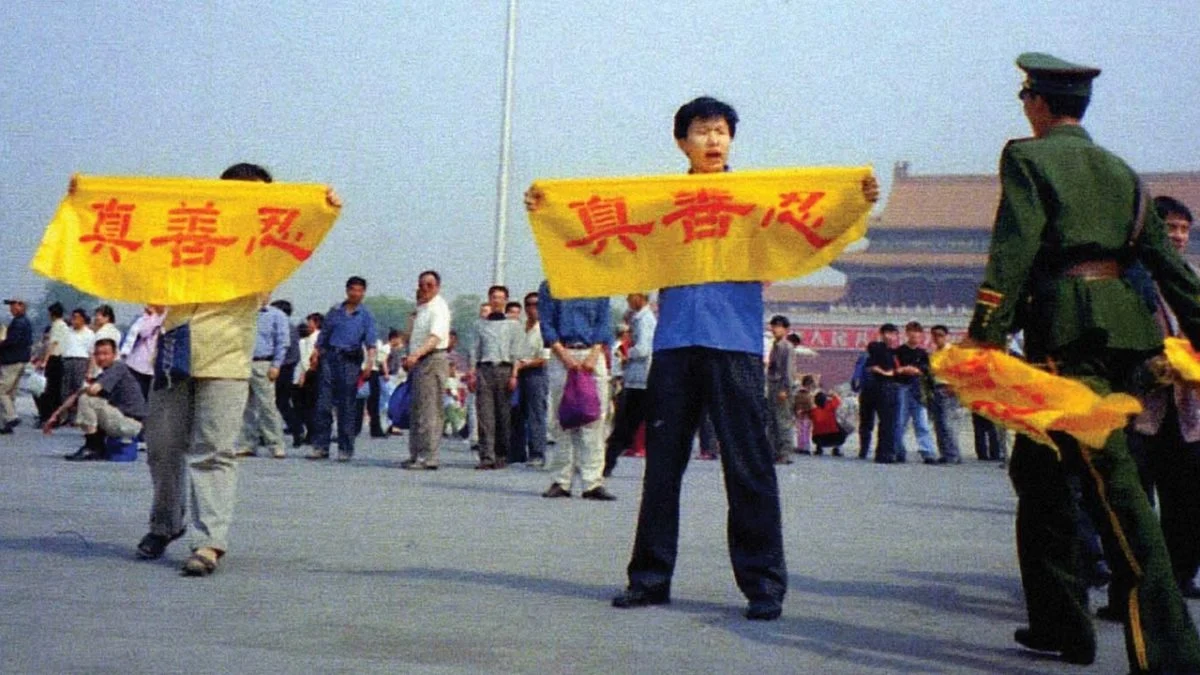Unmasking The Ccp’s Dark Shadows : Volkswagon’s Complicity In Uyghur Forced Labour
In recent weeks, Volkswagen (VW), a global automotive giant, has found itself in a quagmire of controversy as evidence surfaced linking the company to alleged forced labor in Xinjiang, China. The revelations have far-reaching implications, shedding light on the complicity of multinational corporations in the Chinese Communist Party’s (CCP) gross human rights abuses against the Uyghur minority.
The allegations, first reported by Reuters on Feb. 14, indicate that VW benefited from forced labor in Xinjiang, where the CCP is accused of executing a genocide against the Uyghur population. Shockingly, Uyghurs were allegedly involved in building a test track for a VW joint venture, further deepening the connection between major international corporations and the exploitation of vulnerable communities.
Photographic evidence and online statements have surfaced, raising questions about VW’s ethical practices. This comes at a time when global scrutiny of the CCP’s actions in Xinjiang has intensified, with multiple governments, including the U.S. State Department, labeling it as genocide.
One German investment fund has already canceled Volkswagen’s status as a sustainable investment in response to these allegations, signaling the financial repercussions that could follow if the company fails to address its alleged ties to forced labor. The gravity of the situation was compounded by the impounding of thousands of Volkswagen brand cars, including Porsche, Audi, and Bentley, by U.S. authorities due to the inclusion of parts that could have been produced with forced labor.
The CCP defends its “work programs” in Xinjiang as poverty alleviation initiatives, but the U.N. Human Rights Office has labeled Beijing’s treatment of the Uyghurs as a potential “crime against humanity.” Uyghur groups allege that Volkswagen’s joint venture may be benefiting from slave labor involved in aluminum manufacturing in Xinjiang, adding another layer to the disturbing narrative.
Volkswagen’s response, as reported by The Wall Street Journal on Feb. 15, has been dismissive and attempts to minimize the company’s involvement in a region marked by allegations of genocide and forced labor. A VW spokesman claimed ignorance, stating, “We really try, but this shows how challenging it is to really know everything that is happening in complex supply chains.” Such responses, however, raise ethical questions about corporate responsibility and the commitment of global corporations to ensuring their supply chains are free from human rights abuses.
The argument that it is challenging to monitor complex supply chains is not an excuse; it is an indictment of the systemic issues within corporate structures. Companies like Volkswagen must prioritize due diligence and transparency to ensure they are not complicit in human rights abuses, even inadvertently.
The repercussions for Volkswagen go beyond financial penalties. The German automaker may face vehicle impounds, recalls, and retrofits, in addition to potential cancellations of contracts with Chinese suppliers and joint venture partners. The challenge lies in balancing ethical considerations with economic interests, and Volkswagen is not the only company grappling with this dilemma.
Within days of the allegations surfacing, one positive development emerged – reports suggested that Volkswagen was considering uprooting its joint venture production facilities from Xinjiang. However, it raises the question of whether such a move is merely reactive damage control or a sincere commitment to disassociate from regions linked to human rights abuses.
The situation highlights the larger issue of global corporations navigating the Chinese market, where economic opportunities are abundant but ethical challenges are equally prevalent. The Chinese government’s “work programs” may be framed as poverty alleviation, but they cannot overshadow the stark reality of forced labor and human rights abuses that have been widely documented.
Moreover, it is not just Xinjiang where Uyghur slaves are allegedly used. Reports suggest that the CCP has transported them to other provinces in an apparent attempt to conceal their exploitation. This practice exposes the systematic nature of the abuse, indicating a deliberate effort to hide the dark side of China’s labor practices.
The response from the German government is crucial in this context. While encouraging companies to reduce their dependence on China, it is essential for the German authorities to uphold human rights values and take a firm stance against any form of complicity in forced labor. The fact that BASF, another German giant, is reportedly decoupling from Xinjiang is a positive step, but it also underscores the need for a broader international response.
As China’s foreign ministry vehemently denies the allegations and accuses external forces of concocting lies to discredit the country, the global community must stand firm against human rights abuses. Volkswagen and BASF’s decisions to reconsider their involvement in Xinjiang should be commended, but these actions must be part of a broader movement to hold corporations accountable for their supply chains and to push back against the CCP’s disregard for human rights. In conclusion, the recent revelations about Volkswagen’s alleged complicity in forced labor in Xinjiang should serve as a wake-up call for the international community. It is a stark reminder that economic interests should not take precedence over ethical considerations, and corporations must take proactive steps to ensure their supply chains are free from human rights abuses. The CCP’s actions in Xinjiang demand condemnation, and global corporations must be held accountable for their role in perpetuating or opposing such abuses.












